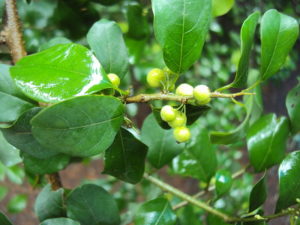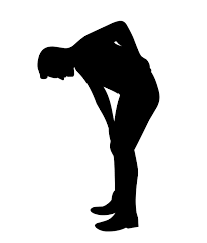Ayurveda Herb Guggulu for Joint Pains
Arthritis is the most common and depriving disease of the Musculo-Skeletal system. And this debilitating ailment is one of the most common health issues world over.
Ayurveda Herb Support For Bones And Joints
Adjunct to characteristic features of joint pain, inflammation, tenderness, swelling and stiffness; this ailment of arthritis is more or less disabling for the individual. Osteo – arthritis, rheumatoid arthritis and gouty arthritis are the joint pain types that are universal pathetic joint afflictions.
Signs And Symptoms of Joint Pains Or Arthritis
• Tenderness and enlargement of the joint with limitation of its movements.
• There generally is pain in the affected joints, which increases on movement and decreases with rest.
• Joint stiffness and wasting of the muscles.
• The pain might increase with change in the weather. These symptoms are at large experienced in case of those suffering from Rheumatoid arthritis.
• Generally pain and inflammation in multiple joints, with pain, stiffness and symmetrical swelling of the peripheral joints.
• The small joints of the fingers and toes are initially affected.
• Morning stiffness is often experienced.
• Skin may develop subcutaneous fibrous nodules.
• Anorexia, weakness, loss of weight and characteristic deformities of the joints as the disease progresses.
• The R.A. factor is positive in case of Rheumatoid arthritis.
Ayurveda View Of Arthritis
- The degenerative joint disease or the osteo-arthritis is called as Sandhigat vata, whereas Rheumatiod arthritis is known by Sanskrit synonym as Ama Vata.
- According to Ayurveda philosophy, joint pain develops mainly due to accumulated toxic matter which further results in imbalance of the three doshas.
- Due to weakness of the gastric fire or the Agni, when the food remains undigested, then the undigested juice (Ama rasa) intermingles with the vitiated humors Vata, Pitta and Kapha.
- This results in causing pain and inflammation in the joints and thus production of the disease.
Guggulu – Ayurveda Herb For Arthritis

Ayurveda medicine is rich natural source of herbs and herbo-mineral products that ensure sufficient relief from joint afflictions. A number of herbs like Garlic, Ginger, Guggulu, Turmeric, Bishop’s weed, Shilajit, Rasna, Nirgundi etc have been recommended time and again in Ayurveda text so as to attain relief from joint pains. Ayurveda therapy counsels both external as well as internal usage of the herbs. Of these, Guggulu is one herb I would like to emphasize on that is highly popular Ayurveda drug of choice for joint pains.
What Is Guggulu In Ayurveda?
Guggul is extracted from small, perennial shrubs or trees of Commiphora mukul. The extracts are collected by making incisions in the bark of the tree. This process is generally undertaken during the winter season. The extracts thus removed are fragrant and thick in consistency. They have different colors like red, brown, yellowish or black.
Various Benefits Of Guggulu
- The English name for Guggul is Indian Bedellium.
- According to Ayurvedic texts, the best quality Guggul should be soft, slimy and yellowish in color.
- It should contain a sweet odor and be clear of impurities like mud, sand, etc.
- Furthermore, Guggul should make a milky emulsion when dissolved in hot water, melt in heat, and burn readily.
- Guggul is light, robust, fragrant and rough when old, yet viscid, slimy when new.
- It is bitter and pungent and astringent in taste and the after taste is bitter.
- Also, Guggul is hot in potency.
- In Ayurveda, the use of Guggul is abundant. There are a number of well-known formulations like Yograj guggul, Kaishor guggul, Chander prabha vatti etc.
Ayurveda Significance of the Herb of Guggulu
Guggul or Guggulu is the exudate of small, perennial shrub or trees (4 to 6 feet) of Commiphora mukul.
- This exudate is collected by making incisions in the bark of the tree.
- This process is generally undertaken during the winter season.
- The exudates thus removed are fragrant and thick in consistency.
- It has different colours like red, brown, yellowish or black.
Ayurveda Names For Guggulu
The English name of Guggul is Indian Bedellium. And some of the Sanskrit synonyms are –
- Guggulu i.e. that which protects from a disease
- Pur i.e. best among medicines
- Palankash i.e. which tends to decrease obesity
Natural Properties Of Guggulu
According to Ayurvedic text, the best Guggul would be the one having following characteristics. It should be soft, slimy and yellowish in colour. It should contain a sweet odour and should be clear of the impurities of mud, sand etc. Furthermore Guggul should make a milky emulsion when dissolved in hot water, melt in heat and burn readily.
How To Use Guggulu For Arthritis?

• According to Ayurveda, Guggul is a destroyer of the aggravated Vata and Kapha doshas (air and phlegm body humors), both of the doshas reason for joint pain and swelling. Thus the herb of Guggulu benefits ailments resulting from a distortion in vata or air like Arthritis, sciatica, paralysis etc.
• Local application of a paste prepared from Guggul is particularly beneficial in relieving pain and swelling. This is generally advised to be previously warmed and applied locally to the effected site of joint pains and inflammation.
• Guggul also holds anti septic properties and thus aids to relieve painful, red and inflamed joints.
• Two to four grams of Guggul is recommended as a tonic to strengthen joints and muscles as well as to increase the general vitality and vigor. This needs to be taken at bedtime along with a glass of hot milk, preferably in winters.
• Having the natural tendency to decrease and balance the aggravated Vata, Guggul may be used both for external application as a paste and be taken internally so as to find relief from joint pains and muscular stiffness.
Article Published here
About the Author:
Dr Sonica Krishan is Author and Speaker in Healthy and Joyous Living through Ayurveda, Meditation, Yoga and other Contemplative practices. She is a leading Ayurveda Professional in India. She is also Health Writer, Columnist, Editor, Ayurveda Consultant at Herboveda and Holistic Healing Coach. Dr Sonica is open for National as well as International Collaborations with interested people / institutions in fields of Ayurveda, Meditation and Yoga.

